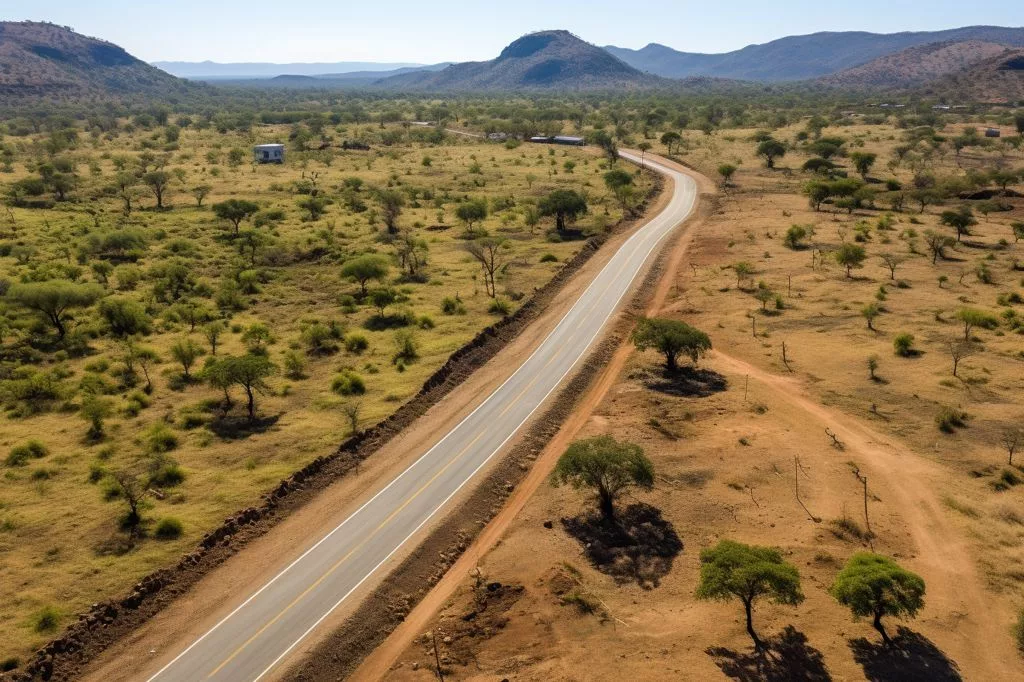South Africa’s Minister of International Relations and Cooperation Naledi Pandor engaged in a conversation with Hamas leader Ismail Haniyeh to discuss strategies for delivering humanitarian aid to Palestine. The dialogue emphasized South Africa’s commitment to solidarity with the Palestinian people and its history of mediation and conflict resolution. Both parties stressed the importance of seizing opportunities for dialogue over violence and examined various means of delivering essential aid to the Palestinian territories. Minister Pandor’s communication highlighted South Africa’s dedication to global diplomacy and conflict resolution.
What was discussed during Minister Naledi Pandor’s communication with Hamas Leader on Humanitarian Assistance to Palestine?
The conversation mainly revolved around strategies for delivering humanitarian aid to Palestine, highlighting South Africa’s commitment to solidarity with the Palestinian people and its history of mediation and conflict resolution. Both parties stressed the significance of seizing opportunities for dialogue over resorting to violence, and examined various means of delivering essential aid to the Palestinian territories. Minister Pandor’s communication emphasized South Africa’s dedication to global diplomacy and conflict resolution.
South Africa’s Commitment to Solidarity and Diplomacy
A recent discussion between South Africa’s Minister of International Relations and Cooperation Naledi Pandor and the leader of Hamas, Ismail Haniyeh, primarily revolved around devising strategies for delivering humanitarian aid to Palestine. The conversation was rooted in South Africa’s commitment to stand in solidarity with the Palestinian people and expression of grief over the loss of innocent lives on both Palestinian and Israeli sides.
Minister Pandor’s communication with Hamas reflects South Africa’s readiness to work with various interlocutors in fostering dialogue to put an end to the enduring conflict. This aligns with the country’s history of mediation and conflict resolution, both within the African continent and across the globe.
Contrary to some false claims regarding Minister Pandor’s alleged support for the “Battle of Al-Aqsa Flood,” her office has refuted these reports, stating that they are intended to damage the reputation of both the Minister and the South African government. Instead, the conversation with the Hamas leader focused on the urgent need for humanitarian aid in Gaza and other Palestinian territories.
Fostering Dialogue for Peace and Conflict Resolution
Drawing from South Africa’s well-documented experience in mediation and conflict resolution, Minister Pandor and the Hamas leader discussed potential avenues to achieve peace. Both parties underscored the significance of seizing opportunities for dialogue over resorting to violence.
The international community has a crucial role in advocating for the implementation of global resolutions and establishing a credible peace process. The leadership of South Africa in this domain highlights its dedication to imparting knowledge and expertise in resolving conflicts, informed by its own history of overcoming apartheid and striving for a fair society.
During the discussion, Minister Pandor and the Hamas leader examined various means of delivering the essential humanitarian aid to the Palestinian territories, including Gaza. The emphasis remained on finding viable solutions to alleviate the suffering of innocent civilians caught up in the turmoil of the ongoing conflict.
Upholding Principles of Non-Violence and Diplomacy
The dialogue between Minister Pandor and the Hamas leader exemplifies South Africa’s broader commitment to global diplomacy and conflict resolution. By engaging in dialogue with multiple stakeholders, South Africa seeks to nurture an environment where peace and stability can flourish.
The South African government adheres to the principles of non-violence and diplomacy in its international relations, as showcased by Minister Pandor’s communication with the Hamas leader. This approach stems from the conviction that enduring peace can only materialize through open dialogue and a genuine commitment to the welfare of all parties involved.
In the face of false reports attempting to undermine the government’s motives, South Africa’s Department of International Relations and Cooperation (DIRCO) reaffirms that the primary goal of the dialogue was to facilitate the delivery of humanitarian aid to Palestine. The conversation between Minister Pandor and the Hamas leader emphasizes the nation’s unwavering support for the Palestinian people and its dedication to the pursuit of peace in the region.
Pursuing Peace through Dialogue and Collaboration
Minister Pandor and the South African government’s efforts serve as a reminder that peace can be achieved through meaningful dialogue and authentic collaboration among all stakeholders. As the international community continues to confront the intricacies of the Israeli-Palestinian conflict, South Africa’s steadfast commitment to diplomacy, mediation, and conflict resolution provides valuable insights and guidance.
In conclusion, the dialogue between Minister Naledi Pandor and Hamas Leader Ismail Haniyeh highlights the importance of open communication in addressing pressing international concerns. By prioritizing humanitarian aid to Palestine and advocating for peace through diplomacy, South Africa demonstrates its unwavering commitment to human rights and global stability.
What is South Africa’s commitment to solidarity and diplomacy in the Israeli-Palestinian conflict?
South Africa is committed to standing in solidarity with the Palestinian people and expressing grief over the loss of innocent lives on both Palestinian and Israeli sides. Minister Pandor’s communication with Hamas reflects South Africa’s readiness to work with various interlocutors in fostering dialogue to put an end to the enduring conflict. This aligns with the country’s history of mediation and conflict resolution, both within the African continent and across the globe.
What was discussed during the conversation between Minister Naledi Pandor and the Hamas leader?
The conversation mainly revolved around strategies for delivering humanitarian aid to Palestine, highlighting South Africa’s commitment to solidarity with the Palestinian people and its history of mediation and conflict resolution. Both parties stressed the significance of seizing opportunities for dialogue over resorting to violence, and examined various means of delivering essential aid to the Palestinian territories. Minister Pandor’s communication emphasized South Africa’s dedication to global diplomacy and conflict resolution.
How does South Africa foster dialogue for peace and conflict resolution?
Drawing from South Africa’s well-documented experience in mediation and conflict resolution, Minister Pandor and the Hamas leader discussed potential avenues to achieve peace. Both parties underscored the significance of seizing opportunities for dialogue over resorting to violence. The emphasis remained on finding viable solutions to alleviate the suffering of innocent civilians caught up in the turmoil of the ongoing conflict.
What principles does South Africa uphold in its international relations?
The South African government adheres to the principles of non-violence and diplomacy in its international relations. This approach stems from the conviction that enduring peace can only materialize through open dialogue and a genuine commitment to the welfare of all parties involved.
What is the goal of the dialogue between Minister Naledi Pandor and the Hamas leader?
The primary goal of the dialogue was to facilitate the delivery of humanitarian aid to Palestine. The conversation between Minister Pandor and the Hamas leader emphasizes the nation’s unwavering support for the Palestinian people and its dedication to the pursuit of peace in the region.
How does South Africa pursue peace through dialogue and collaboration?
Minister Pandor and the South African government’s efforts serve as a reminder that peace can be achieved through meaningful dialogue and authentic collaboration among all stakeholders. As the international community continues to confront the intricacies of the Israeli-Palestinian conflict, South Africa’s steadfast commitment to diplomacy, mediation, and conflict resolution provides valuable insights and guidance.
What is DIRCO’s response to false reports about Minister Pandor’s alleged support for the “Battle of Al-Aqsa Flood”?
South Africa’s Department of International Relations and Cooperation (DIRCO) has refuted these reports, stating that they are intended to damage the reputation of both the Minister and the South African government. Instead, the conversation with the Hamas leader focused on the urgent need for humanitarian aid in Gaza and other Palestinian territories.
How does South Africa’s history of apartheid inform its approach to conflict resolution?
South Africa’s history of overcoming apartheid and striving for a fair society informs its approach to conflict resolution. The leadership of South Africa in this domain highlights its dedication to imparting knowledge and expertise in resolving conflicts, both within the African continent and across the globe.








